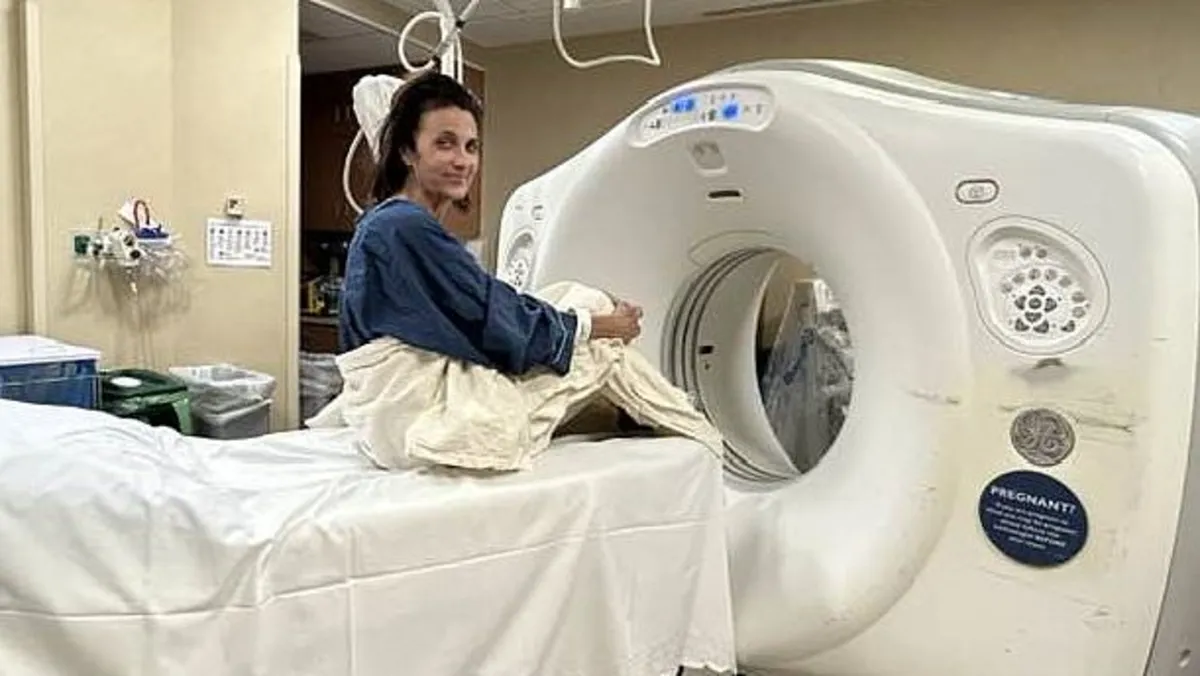
A California woman, Jamie Comer, was given a grim prognosis of just six months to live after being diagnosed with stage four colon cancer in 2016. At the age of 47, a routine blood test revealed elevated liver enzymes, which are crucial for the liver's function in breaking down nutrients. A subsequent colonoscopy uncovered the devastating truth: Jamie had 57 tumors on her liver, presenting her with a dire situation and limited time.
Despite being told she had only three to six months left, Jamie Comer fought against the odds. Over the next decade, she underwent an astonishing 180 rounds of chemotherapy and multiple surgeries to address the tumors. However, the toll of these treatments left her feeling even more unwell than before. Now, at 55 years old, Jamie has made the difficult decision to stop her treatments and enter hospice care, focusing instead on the quality of her life.
Jamie shared with ABC 7 News that the decision to cease treatment was not hard for her. “There were no treatment options that were working, and the chemo was making me sicker, so I couldn't recover,” she explained. Her journey has now shifted towards advocacy, encouraging young individuals to prioritize colon cancer screening and pushing for updated screening guidelines.
Although a colonoscopy is recognized as the gold standard for detecting colon cancer, the recommended screening age has only recently changed from 50 to 45. Jamie Comer believes that had the guidelines been updated a few years earlier, she might have caught her cancer before it became terminal. She remarked, “I would have been inconvenienced for maybe 18 months, but it would not have been a death sentence.”
Colorectal cancer is the fourth most prevalent cancer in the United States and the second leading cause of cancer-related deaths. The American Cancer Society projects that 154,270 Americans will be diagnosed with colon cancer this year, with 52,900 expected to succumb to the disease. Alarmingly, among these cases, 19,550 and 3,750 deaths will occur in individuals under the age of 50. By 2030, it is estimated that colon cancer will become the leading cancer killer for that demographic.
Experts remain uncertain about the causes behind the rising incidence of colon cancer, but several factors have been proposed, including obesity, diets high in processed meats and sugars, sedentary lifestyles, and environmental exposures such as microplastics and antibiotics. Common signs of colon cancer include bloody stool, abdominal pain, weight loss, and alterations in bowel habits. However, Jamie Comer experienced no symptoms leading up to her diagnosis, with the only indication of trouble being elevated liver enzymes from a blood test.
These liver enzymes are proteins that assist the liver in producing bile and detoxifying the body. When cancer spreads to the liver, it damages protective cells, resulting in excess enzymes entering the bloodstream. Jamie’s ordeal included spending 8 to 11 hours on chemotherapy treatments three days a week, alongside undergoing seven surgeries to remove tumors from her liver.
Even as Jamie concludes her treatment journey, her message to young people and healthcare providers remains clear: “Screen early.” She emphasized that taking proactive steps in one's health is essential. A colonoscopy, which involves inserting a camera-equipped tube into the rectum and colon, is vital for early detection. During the procedure, any polyps found can be removed and tested for cancer.
The American Cancer Society recommends that individuals begin screening with a colonoscopy every ten years starting at age 45. Unfortunately, Jamie’s diagnosis occurred prior to the guideline change, preventing her from catching the cancer in its earlier stages.
Despite her challenging circumstances, Jamie finds strength in her family, particularly her husband and 17-year-old daughter. “Who would want to leave this beautiful world with all this kindness?” she reflected, emphasizing the importance of love and support during her battle with cancer. Jamie Comer’s journey serves as a powerful reminder of the need for awareness, early screening, and community support in the fight against colon cancer.